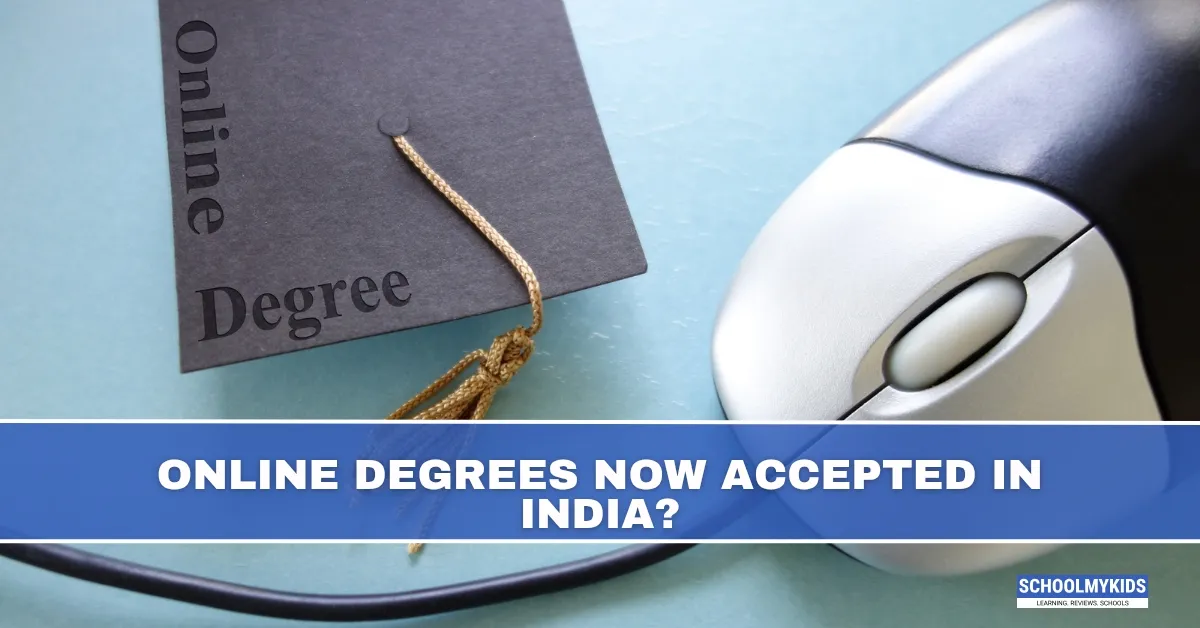In a major reform aligning with global educational standards and the digital shift in learning, India has officially recognized online degrees as equivalent to traditional, on-campus degrees—provided they meet specific academic and regulatory standards. This change, driven by the University Grants Commission (UGC) and framed within the broader objectives of the National Education Policy (NEP) 2020, reflects India’s growing commitment to accessible, flexible, and quality education.
What Has Changed?
Historically, online learning in India was considered supplemental, often not accepted for higher education admission or formal job applications. However, the UGC now formally allows universities to offer fully online degree programs and considers them equivalent to conventional degrees under certain conditions.
An online degree will now be recognized in India if:
- It is offered by a university or higher education institution approved by the UGC.
- The institution holds a National Assessment and Accreditation Council (NAAC) score of 3.01 or higher.
- The program is listed under UGC’s Open and Distance Learning (ODL) or Online Education Regulations.
- The curriculum and examination methods adhere to academic standards equal to those of regular degree programs.
This applies to undergraduate, postgraduate, and diploma programs in select disciplines.
Which Degrees Are Eligible?
Not all degrees are included under this new framework. The recognition currently applies to programs that do not involve intensive laboratory work or professional licensing requirements. Eligible degrees typically include:
- Bachelor of Arts (BA)
- Bachelor of Commerce (BCom)
- Bachelor of Business Administration (BBA)
- Master of Arts (MA)
- Master of Commerce (MCom)
- MBA (if offered by accredited universities)
- Certificate and diploma programs in fields such as business analytics, public administration, and digital marketing
Programs that require hands-on clinical or laboratory training—such as medicine, pharmacy, law, engineering, and architecture—are excluded from this equivalency due to their practical components, which cannot be effectively delivered online.
Why Is This a Landmark Decision?
- Democratization of Higher Education: This move opens new doors for millions of learners across India, particularly those in rural or remote regions who may lack access to physical universities.
- Flexibility for Working Professionals: Many students and professionals will now have the opportunity to upgrade their qualifications without compromising their employment or personal responsibilities.
- Global Competitiveness: By formally recognizing online degrees, India aligns itself with international education trends where universities in countries such as the United States, UK, Australia, and Canada have long accepted online and hybrid education models.
- Boost to EdTech and Higher Education Institutions: With regulatory clarity, Indian universities can now partner more confidently with edtech platforms to offer accredited online programs, thereby expanding their reach and revenues.
Government and Institutional Guidelines
To maintain academic integrity, the UGC has laid out several quality control mechanisms:
- Institutions must host lectures via Learning Management Systems (LMS) and ensure regular assessments.
- Proctored exams and digital verification of credentials are required.
- Universities must list approved online programs on the UGC DEB (Distance Education Bureau) portal.
- Institutions failing to meet standards will have their approvals revoked.
Employer and Public Sector Acceptance
Government departments and public sector undertakings (PSUs) are expected to accept online degrees that meet UGC guidelines for recruitment and promotions. However, acceptance may vary initially across private sector employers depending on awareness and familiarity with the new policy.
Looking Ahead
This reform signals a broader transformation in Indian higher education, making it more inclusive and adaptable. While challenges remain in terms of quality assurance, digital infrastructure, and faculty training, the official acceptance of online degrees is a strong step toward bridging educational inequalities and building a lifelong learning culture.
As digital infrastructure continues to improve and pedagogical tools evolve, the credibility and reach of online education in India are poised to grow substantially. With sustained regulatory oversight and institutional accountability, online degrees could soon become a mainstream choice for learners seeking quality education beyond the bounds of traditional classrooms.









Be the first one to comment on this story.